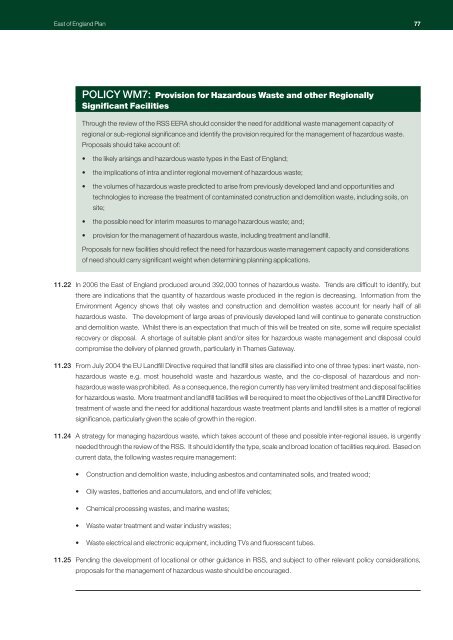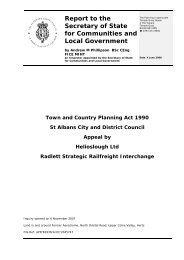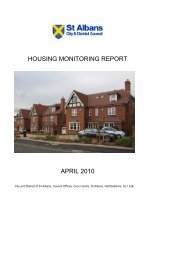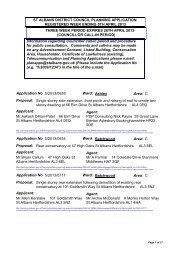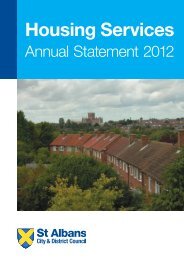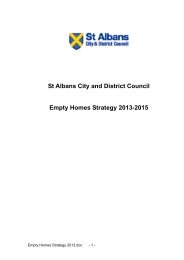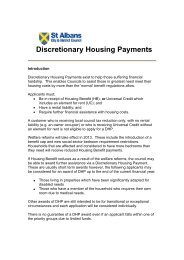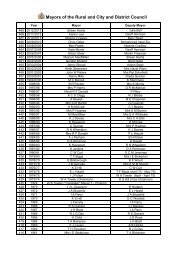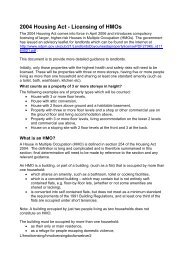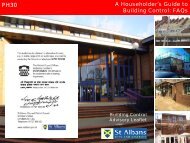RSS East Of England Plan - Broads Authority
RSS East Of England Plan - Broads Authority
RSS East Of England Plan - Broads Authority
You also want an ePaper? Increase the reach of your titles
YUMPU automatically turns print PDFs into web optimized ePapers that Google loves.
<strong>East</strong> of <strong>England</strong> <strong>Plan</strong> 77<br />
POLICY WM7: Provision for Hazardous Waste and other Regionally<br />
Significant Facilities<br />
Through the review of the <strong>RSS</strong> EERA should consider the need for additional waste management capacity of<br />
regional or sub-regional significance and identify the provision required for the management of hazardous waste.<br />
Proposals should take account of:<br />
• the likely arisings and hazardous waste types in the <strong>East</strong> of <strong>England</strong>;<br />
• the implications of intra and inter regional movement of hazardous waste;<br />
• the volumes of hazardous waste predicted to arise from previously developed land and opportunities and<br />
technologies to increase the treatment of contaminated construction and demolition waste, including soils, on<br />
site;<br />
• the possible need for interim measures to manage hazardous waste; and;<br />
• provision for the management of hazardous waste, including treatment and landfill.<br />
Proposals for new facilities should reflect the need for hazardous waste management capacity and considerations<br />
of need should carry significant weight when determining planning applications.<br />
11.22 In 2006 the <strong>East</strong> of <strong>England</strong> produced around 392,000 tonnes of hazardous waste. Trends are difficult to identify, but<br />
there are indications that the quantity of hazardous waste produced in the region is decreasing. Information from the<br />
Environment Agency shows that oily wastes and construction and demolition wastes account for nearly half of all<br />
hazardous waste. The development of large areas of previously developed land will continue to generate construction<br />
and demolition waste. Whilst there is an expectation that much of this will be treated on site, some will require specialist<br />
recovery or disposal. A shortage of suitable plant and/or sites for hazardous waste management and disposal could<br />
compromise the delivery of planned growth, particularly in Thames Gateway.<br />
11.23 From July 2004 the EU Landfill Directive required that landfill sites are classified into one of three types: inert waste, nonhazardous<br />
waste e.g. most household waste and hazardous waste, and the co-disposal of hazardous and nonhazardous<br />
waste was prohibited. As a consequence, the region currently has very limited treatment and disposal facilities<br />
for hazardous waste. More treatment and landfill facilities will be required to meet the objectives of the Landfill Directive for<br />
treatment of waste and the need for additional hazardous waste treatment plants and landfill sites is a matter of regional<br />
significance, particularly given the scale of growth in the region.<br />
11.24 A strategy for managing hazardous waste, which takes account of these and possible inter-regional issues, is urgently<br />
needed through the review of the <strong>RSS</strong>. It should identify the type, scale and broad location of facilities required. Based on<br />
current data, the following wastes require management:<br />
• Construction and demolition waste, including asbestos and contaminated soils, and treated wood;<br />
• Oily wastes, batteries and accumulators, and end of life vehicles;<br />
• Chemical processing wastes, and marine wastes;<br />
• Waste water treatment and water industry wastes;<br />
• Waste electrical and electronic equipment, including TVs and fluorescent tubes.<br />
11.25 Pending the development of locational or other guidance in <strong>RSS</strong>, and subject to other relevant policy considerations,<br />
proposals for the management of hazardous waste should be encouraged.


